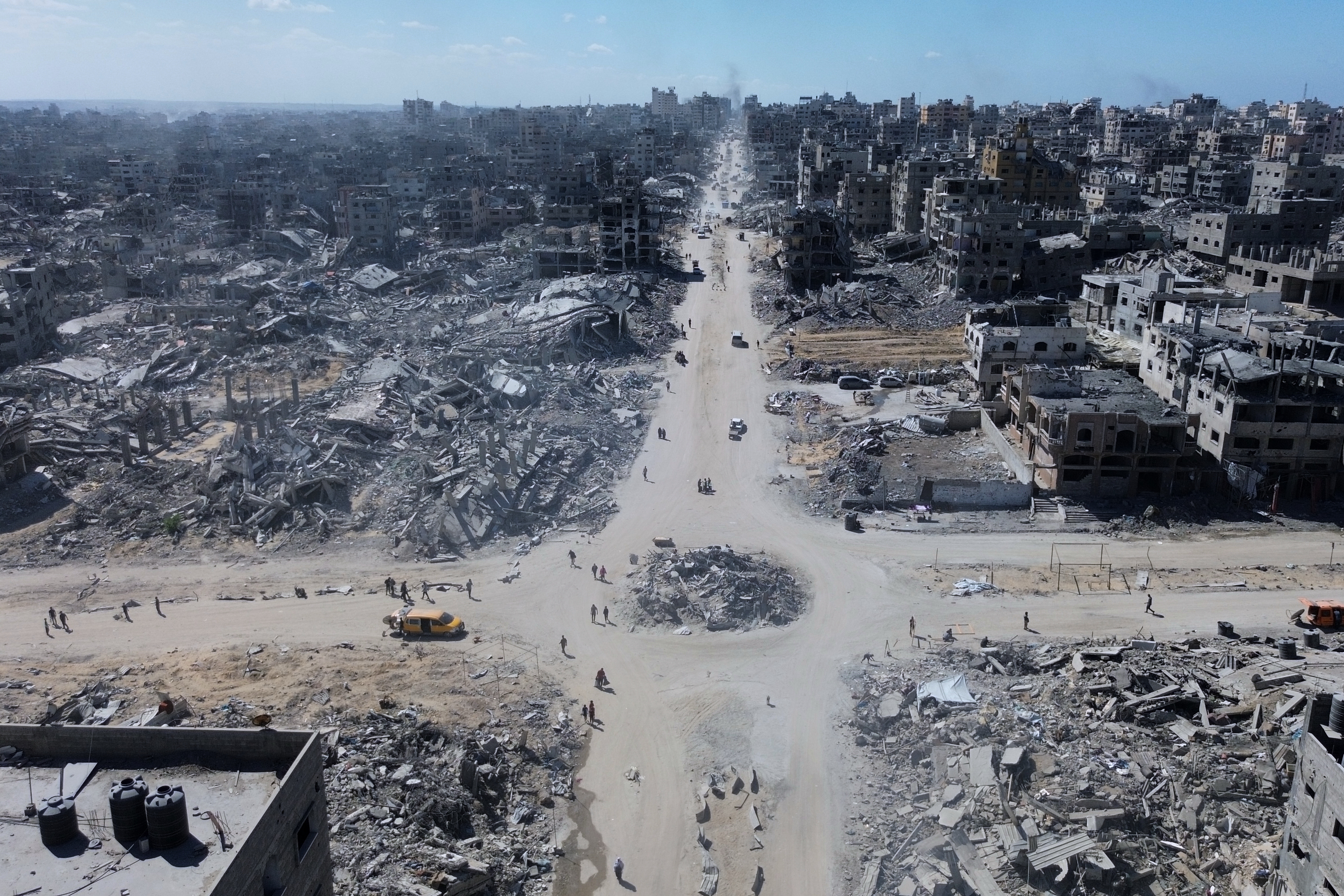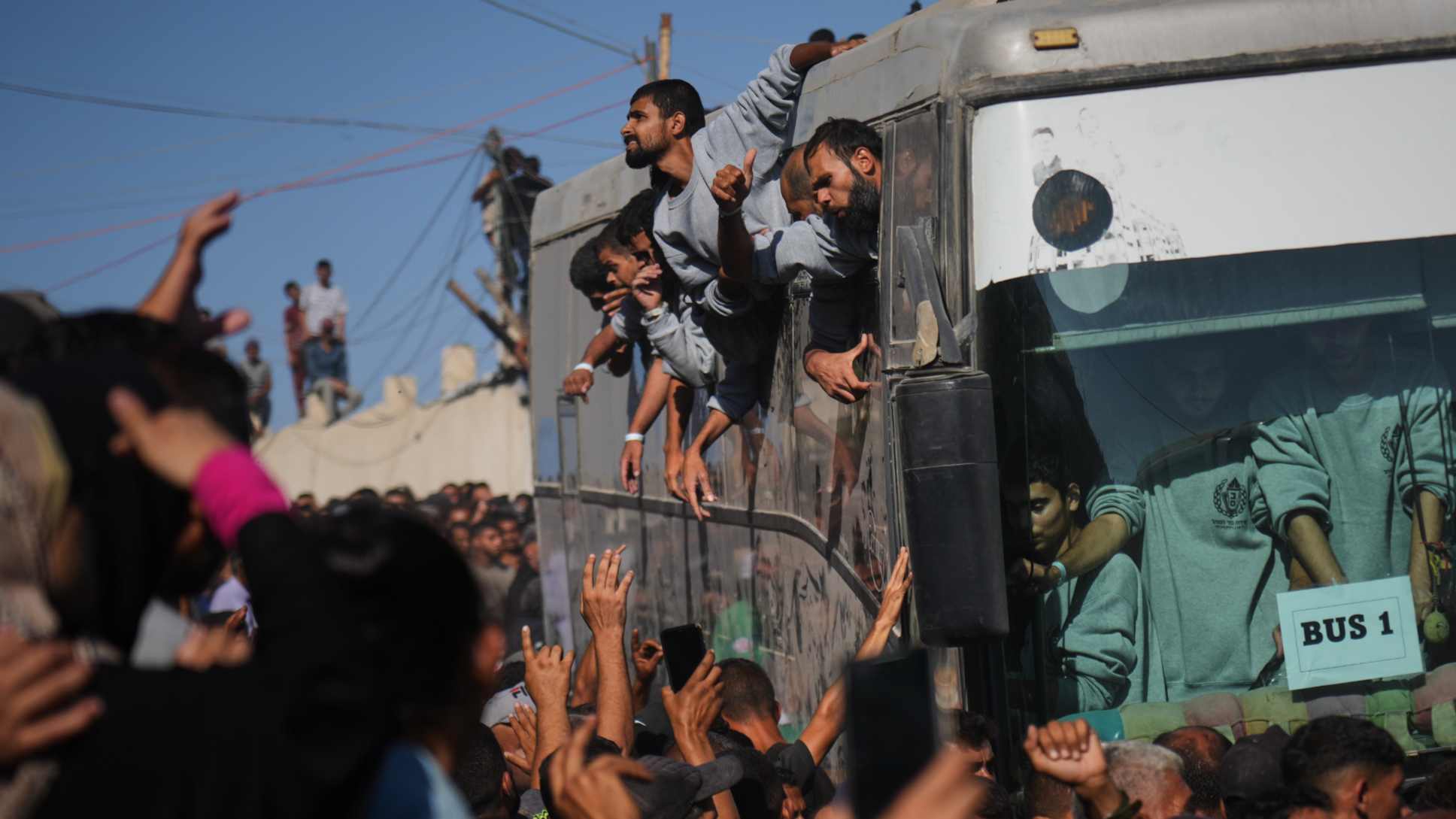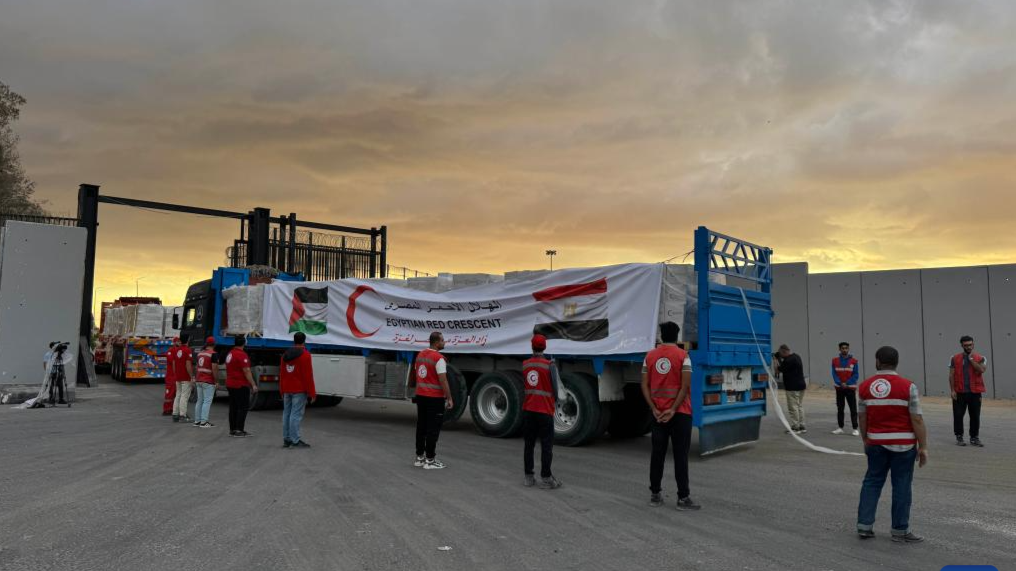
JERUSALEM/GAZA/UNITED NATIONS/LJUBLJANA - Israeli Defense Minister Israel Katz warned on Wednesday that if Hamas does not demilitarize and return all bodies of hostages it holds, Israel will return to fighting.
The threat came on the sixth day of a fragile ceasefire, as Hamas handed over the remains of two more hostages and said they were the last bodies in its custody.
In a statement, Katz said: "If Hamas refuses to comply with the agreement, Israel, in coordination with the United States, will return to fighting and act to achieve the absolute defeat of Hamas, alter the situation in Gaza and attain all the objectives of the war."
In a meeting earlier on Wednesday with the chief of staff and senior military officers, Katz instructed the military to prepare "a comprehensive plan to defeat Hamas" should Israel decide to resume its campaign in Gaza. He said the plan was to be drafted should Hamas "refuse to implement (US President Donald) Trump's plan and fighting needs to be renewed."
Katz added that, under Trump's plan, Hamas is required to return all bodies of deceased hostages in its custody and disarm. He said Israel, together with an international force led by the United States, "would move to destroy all tunnels and terror infrastructure in Gaza to ensure the strip is demilitarized and poses no threat to the State of Israel."
The ceasefire, brokered by the United States, Türkiye, Qatar and Egypt, went into effect on Friday after more than two years of Israeli bombardments that, according to reports, caused famine, left the enclave in ruins, and killed almost 70,000 people, with the United Nations, academic experts and international aid groups warning Israel may have committed genocide and other crimes against humanity.
Two Palestinians were killed in Israeli shelling
Two Palestinians were killed in Israeli shelling east of Gaza City, while 24 others were arrested by Israeli forces in the southern Gaza Strip on Wednesday, Palestinian sources said.
Medical sources at the Baptist Hospital in Gaza City told Xinhua that the two were killed when Israeli shelling targeted a gathering of civilians in the Shujaiya neighborhood, east of the city.
Eyewitnesses said that an Israeli aircraft fired at least one missile at a group of residents who were trying to return to their neighborhood to inspect their homes.
Meanwhile, Palestinian security sources said Israeli forces arrested nine people while they were inspecting their homes in the town of Al-Fakhari, east of Khan Younis, and another 15 in the town of Al-Nasr, east of the southern city of Rafah.
The Israeli army has not issued an immediate comment on the incidents, which occurred despite a ceasefire agreement that took effect on Friday.

Bodies of hostages
Israel expects Hamas to hand over the remaining bodies of hostages still held in Gaza, government spokeswoman Shosh Bedrosian said Wednesday.
Under a fragile ceasefire now in its sixth day, Hamas released on Monday 20 living hostages and later handed over the bodies of seven others out of 28 known dead.
Hamas "is required to uphold its commitments to the mediators and return all of our hostages as part of the implementation of this agreement," Bedrosian told a news conference.
She said Israel "will not compromise on this and will spare no effort until our fallen hostages are returned, every last one of them."
She added that forensic tests confirmed that one of the bodies handed over to Israel on Tuesday night was not that of a hostage.
Hamas has told mediators that recovering the bodies may take time due to technical difficulties in locating burial sites, she said.
Meanwhile, Israel handed over the bodies of 45 Palestinians to Gaza through the International Committee of the Red Cross (ICRC), Gaza's health authorities said on Wednesday.
The transfer brings to 90 the total number of bodies returned this week, after another 45 were handed over on Tuesday, the authorities said in a statement.
ALSO READ: Israel halts reopening of Rafah crossing as Hamas 'fails to return all bodies'

UN humanitarian scale-up suffers setback
The planned scale-up in humanitarian aid deliveries in the Gaza Strip has suffered a setback since the ceasefire deal took effect, UN relief chief Tom Fletcher said Wednesday.
"We must not fail to see through in full the implementation of the agreements made," said Fletcher, also UN under-secretary-general. "Earlier this week, we were able to kick off our humanitarian scale-up after months of frustration and blockages. Food, medicine, fuel, water, cooking gas and tents got through to those who need them. We made progress clearing roads and reopening bakeries. We shared in the joy and relief of families reunited."
Israel on Tuesday announced that it was cutting half the number of truckloads carrying aid allowed into Gaza, or by about 300 truckloads.
The Israeli authorities claimed that the capping was triggered by the failure of Hamas to deliver the remains of deceased hostages.
The UN relief coordinator said that Hamas must make strenuous efforts to return all the bodies of deceased hostages, and that Israel must allow the massive surge of humanitarian aid on which so many lives depend.
Fletcher said that the humanitarian community is determined to save lives, whatever the obstacles.
"We will not accept any interference with our aid distribution," he added.
The UN Office for the Coordination of Humanitarian Affairs (OCHA), which Fletcher leads, said that humanitarian efforts on the ground continued for Gaza.
OCHA said its partners support the production or delivery of hundreds of thousands of meals and bread bundles every day.
The office said that on Monday, the Israeli sides of the Kerem Shalom/Karem Abu Salem and Kissufim border crossings were closed for the exchange of Israeli hostages and Palestinian detainees. No cargo could be offloaded, and only limited supplies, previously cleared through the crossings, could be collected on the Gaza side.
It added that on Tuesday, both crossings remained closed to humanitarian supplies from the Israeli side. However, the United Nations and its partners were able to collect previously cleared cargo from the Gaza side to support health, water, hygiene, sanitation and food operations.
According to the office, all seven humanitarian missions requesting coordination with the Israeli authorities were facilitated on Tuesday, with only one impeded on the ground, before it was eventually accomplished.
The coordinated movements allowed teams to collect supplies from crossings and advance the clearance of the road to Zikim crossing in the north, in anticipation of its opening.
"We're all trying to live with this new situation, and we're trying to find ways to severely increase the aid that goes in through more crossings with more volume," Stephane Dujarric, chief spokesman for the UN Secretary-General, told a daily briefing.
Slovenian FM warns of fragile Gaza ceasefire
Slovenian Foreign Minister Tanja Fajon said Wednesday that the current ceasefire in Gaza remains fragile and warned of complex challenges ahead in implementing the next phase of the peace plan.
Speaking before the parliamentary Foreign Policy Committee, Fajon voiced concern over the "fragile situation on the ground," noting that humanitarian aid entering the war-torn Gaza Strip remains insufficient.
She said a number of key issues still need to be resolved, including questions of governance and reconstruction in Gaza.
"Slovenia remains active and committed to finding a political solution that would establish a permanent ceasefire in the Middle East and peaceful coexistence between Israelis and Palestinians," Fajon said.
She emphasized that efforts should include the establishment of a Palestinian state in line with the two-state solution, highlighting the importance of the United Nations in building a stable political framework for Palestinian governance, as well as the European Union's (EU) role in supporting the process.


